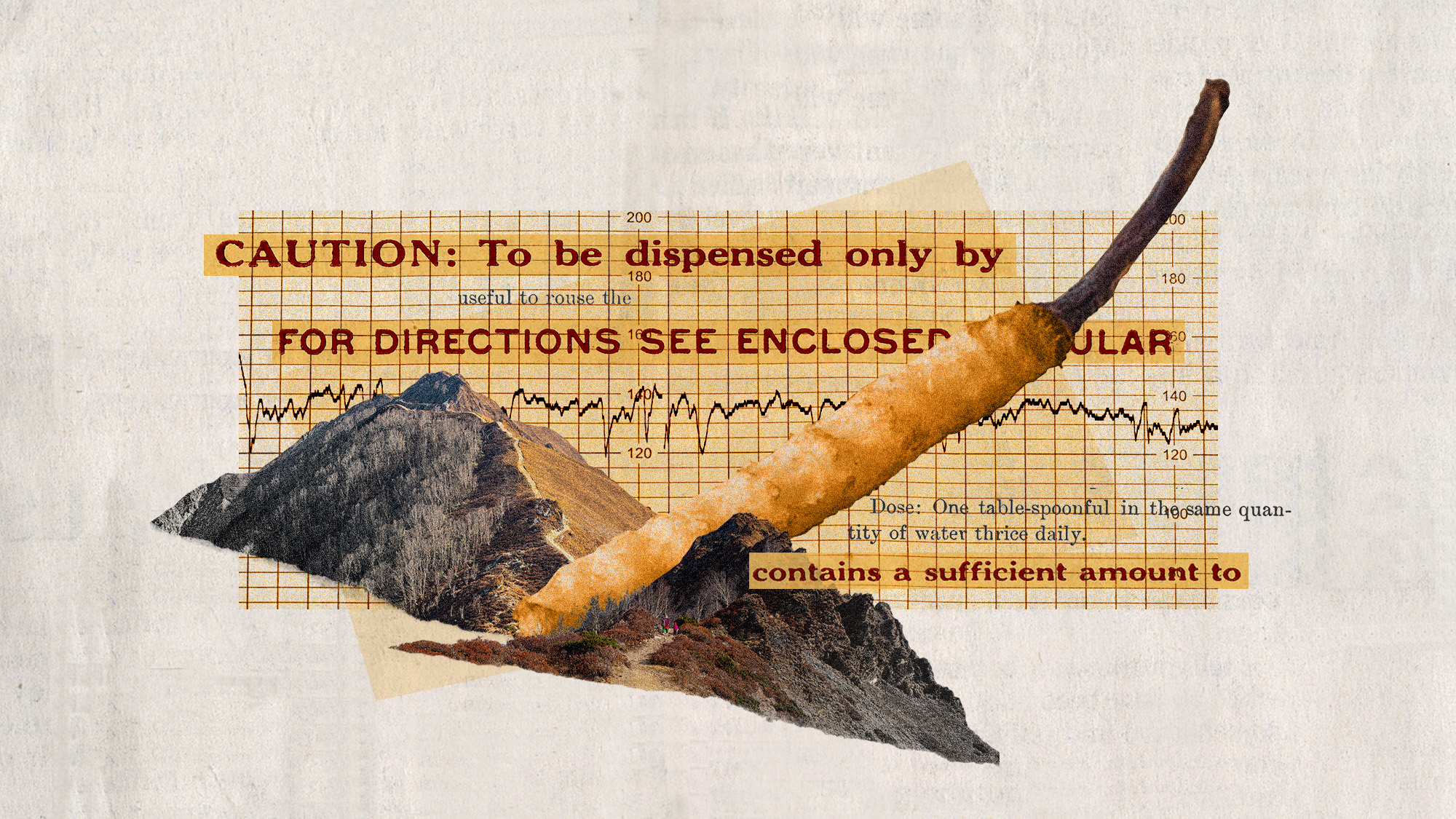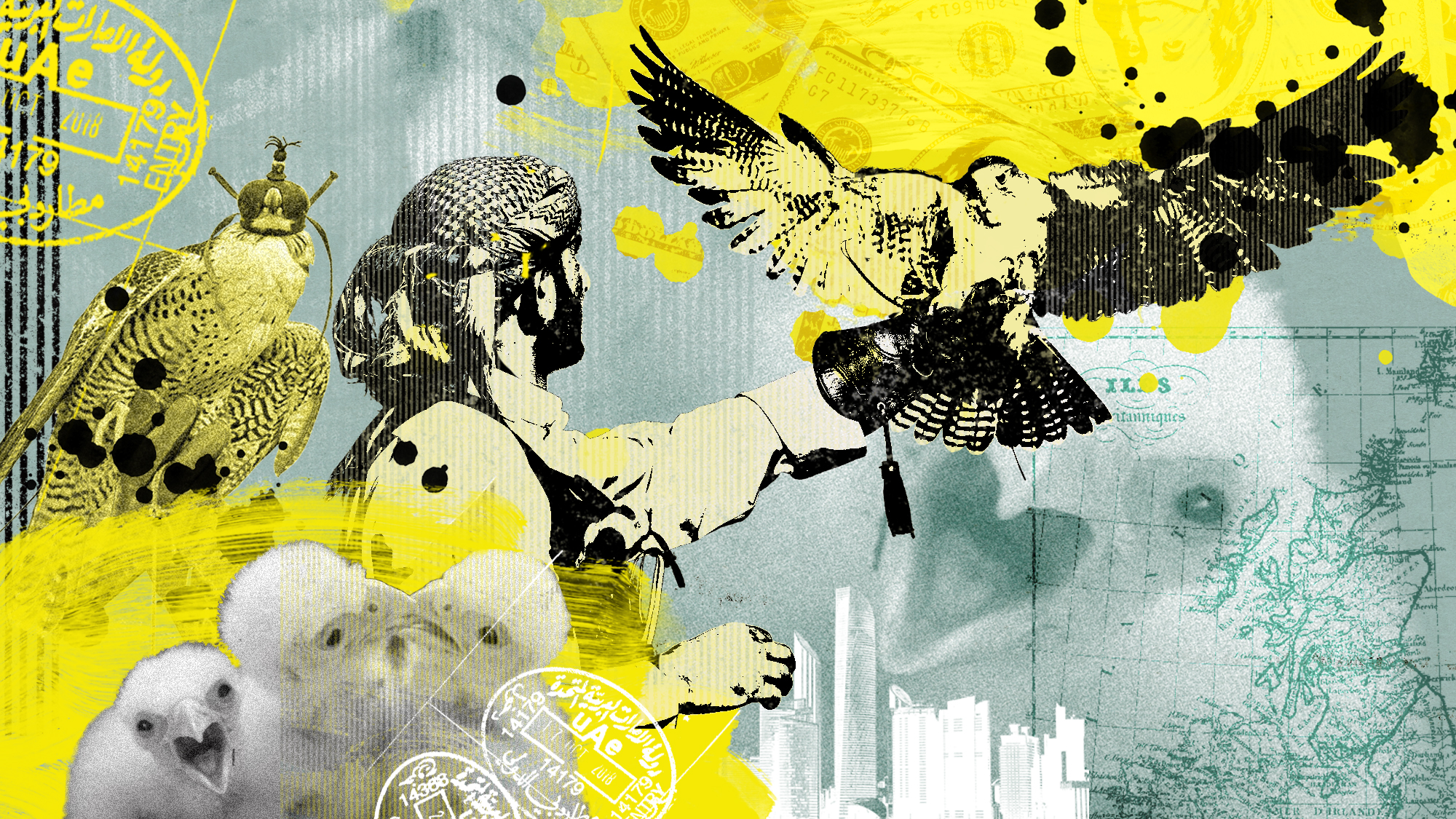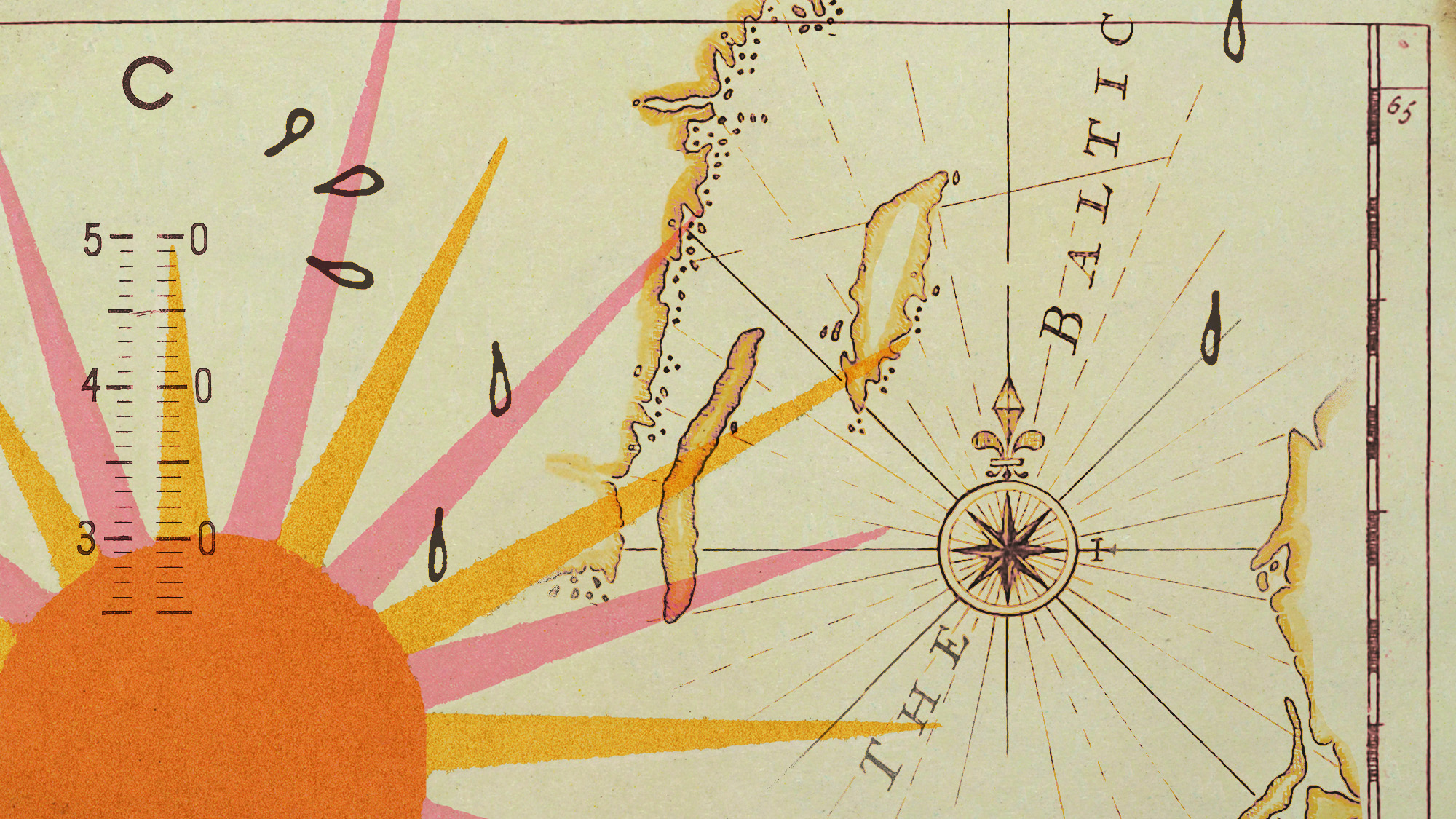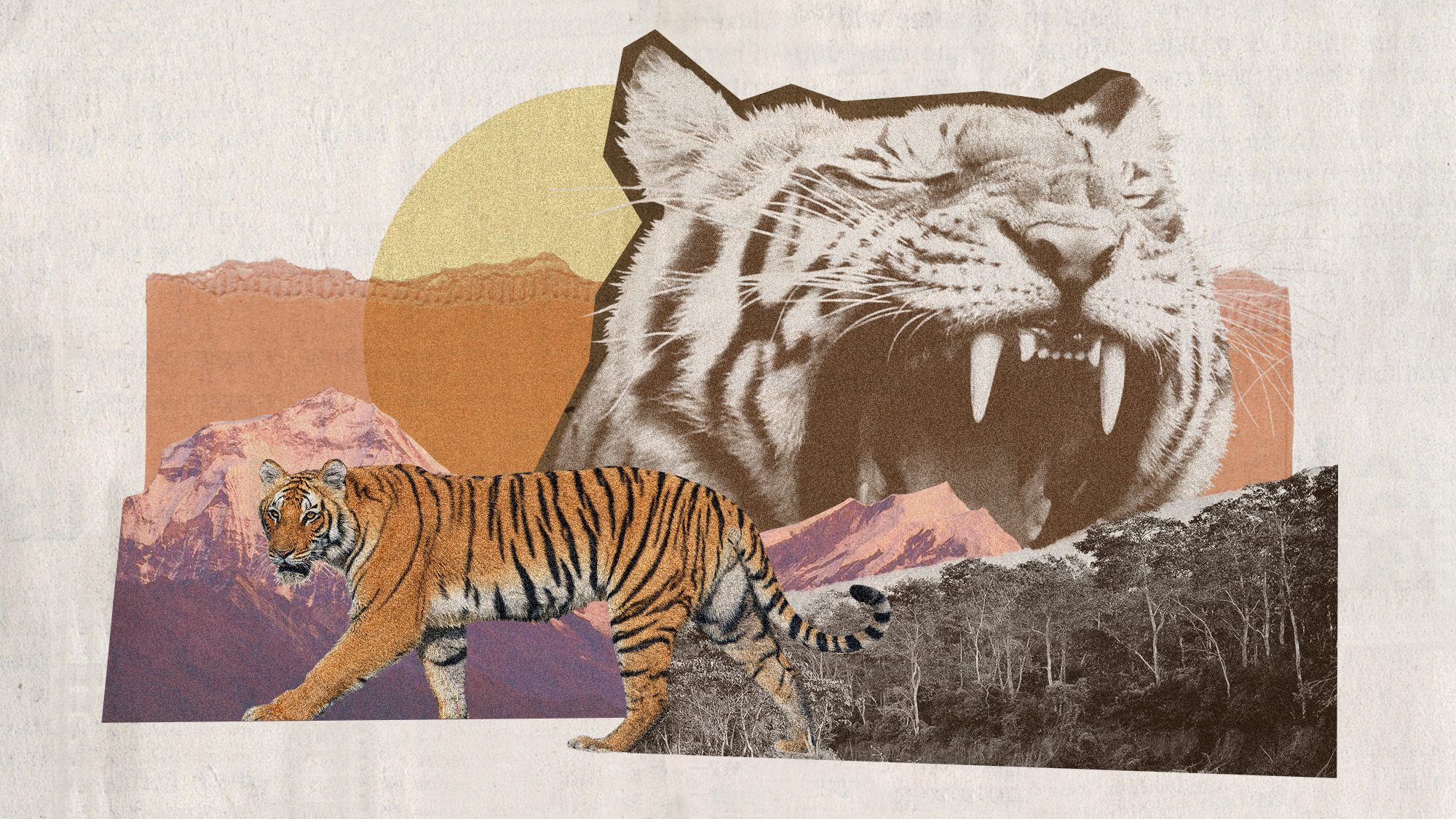'Himalayan Viagra': the world's most coveted fungus
Demand swells for cordyceps sinensis, prized for its medicinal and aphrodisiac qualities

A free daily email with the biggest news stories of the day – and the best features from TheWeek.com
You are now subscribed
Your newsletter sign-up was successful
On the hit zombie TV show "The Last of Us", cordyceps fungus mostly turns people into "superstrong killing machines", said Bloomberg.
But in traditional medicine, the chilli-shaped fungi are "prized as a panacea" and "an aphrodisiac" – so much so that one species found throughout the Himalayas, cordyceps sinensis, is "worth four times its weight in gold". But the booming demand for this so-called "Himalayan Viagra" is taking its toll on a vulnerable region.
'Modern coming-out party'
In the remote, high-altitude pastures of Tibet, Nepal, Bhutan and India, the cordyceps is known by the Tibetan phrase yartsa gunbu ("summer grass, winter worm"). It is believed to strengthen lungs and kidneys, as well as increase vitality. It's also prized in traditional Chinese medicine as an aphrodisiac.
The Week
Escape your echo chamber. Get the facts behind the news, plus analysis from multiple perspectives.

Sign up for The Week's Free Newsletters
From our morning news briefing to a weekly Good News Newsletter, get the best of The Week delivered directly to your inbox.
From our morning news briefing to a weekly Good News Newsletter, get the best of The Week delivered directly to your inbox.
And it's lately had "something of a modern coming-out party", said Bloomberg. In 1993, a Chinese track coach attributed "a series of record-breaking runs" to a tonic made from the fungus.
Since Nepal legalised trade in 2001, it has become a "coveted gift" in China, South Korea and Japan: "a way to show off". Cheap supplements promising "synthetic slivers of cordyceps" can be bought everywhere from Whole Foods to Amazon. In 2013, researchers estimated that the global market was worth as much as $11 billion (£8.7 billion) a year.
It is "the world's most highly prized parasite", said Oryx Journal, and one of the most important sources of income in the extremely poor region. But little is known about its trade, while its harvest and sale is "often illegal and unsustainable".
In 2020, the non-profit organisation International Union for Conservation of Nature listed yartsa as vulnerable to extinction, saying it had declined by at least 30% over 15 years.
A free daily email with the biggest news stories of the day – and the best features from TheWeek.com
A deadly harvest
Its price and scarcity means yartsa "hasn't been studied much in the West", said New Scientist. But researchers in China, Nepal and India have documented its potential benefits for liver, kidney and cardiovascular disease, as well as possible "anti-inflammatory and anti-viral effects". Scientists at the University of Oxford are also studying its potential as an anti-cancer drug.
The increasing demand for yartsa is having "a huge ecological impact" on the region, which is already "warming at double the global average rate". Digging for the fungus increases erosion and harvesting methods can pollute rivers and lead to deforestation.
It's also dangerous for the people gathering yartsa on treacherous terrain that's vulnerable to flash floods and avalanches, said Bloomberg. In 2023, more people died hunting yartsa than "summiting Mount Everest".
The yartsa trade also "relies significantly on child labour", and the potential pay-offs are fuelling smuggling and turf-war violence.
"People fight and die over it, and we're not even sure it works," said Rajendra Bajgain, a member of Nepal's House of Representatives. "Yartsa needs regulation, and we need to shore up our borders. What's really unbelievable is how many people come from China to buy it and smuggle it home. It's out of control."
Harriet Marsden is a senior staff writer and podcast panellist for The Week, covering world news and writing the weekly Global Digest newsletter. Before joining the site in 2023, she was a freelance journalist for seven years, working for The Guardian, The Times and The Independent among others, and regularly appearing on radio shows. In 2021, she was awarded the “journalist-at-large” fellowship by the Local Trust charity, and spent a year travelling independently to some of England’s most deprived areas to write about community activism. She has a master’s in international journalism from City University, and has also worked in Bolivia, Colombia and Spain.
-
 How the FCC’s ‘equal time’ rule works
How the FCC’s ‘equal time’ rule worksIn the Spotlight The law is at the heart of the Colbert-CBS conflict
-
 What is the endgame in the DHS shutdown?
What is the endgame in the DHS shutdown?Today’s Big Question Democrats want to rein in ICE’s immigration crackdown
-
 ‘Poor time management isn’t just an inconvenience’
‘Poor time management isn’t just an inconvenience’Instant Opinion Opinion, comment and editorials of the day
-
 Why the Middle East is obsessed with falcons
Why the Middle East is obsessed with falconsUnder the Radar Popularity of the birds of prey has been ‘soaring’ despite doubts over the legality of sourcing and concerns for animal welfare
-
 Taps could run dry in drought-stricken Tehran
Taps could run dry in drought-stricken TehranUnder the Radar President warns that unless rationing eases water crisis, citizens may have to evacuate the capital
-
 The future of the Paris Agreement
The future of the Paris AgreementThe Explainer UN secretary general warns it is ‘inevitable’ the world will overshoot 1.5C target, but there is still time to change course
-
 Cloudbursts: what are the 'rain bombs' hitting India and Pakistan?
Cloudbursts: what are the 'rain bombs' hitting India and Pakistan?The Explainer The sudden and intense weather event is almost impossible to forecast and often leads to deadly flash-flooding and landslides
-
 What do heatwaves mean for Scandinavia?
What do heatwaves mean for Scandinavia?Under the Radar A record-breaking run of sweltering days and tropical nights is changing the way people – and animals – live in typically cool Nordic countries
-
 Why is the world so divided over plastics?
Why is the world so divided over plastics?Today's Big Question UN negotiations on first global plastic treaty are at stake, as fossil fuel companies, petrostates and plastic industry work to resist a legal cap on production
-
 Europe's heatwave: the new front line of climate change
Europe's heatwave: the new front line of climate changeIn the Spotlight How will the continent adapt to 'bearing the brunt of climate change'?
-
 Does Nepal have too many tigers?
Does Nepal have too many tigers?Under the Radar Wild tiger numbers have tripled in a decade but conservation success comes with rise in human fatalities